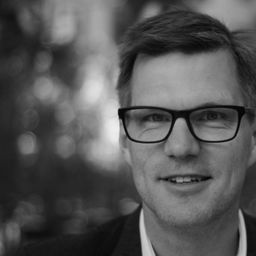14.00 Heritagization and Religionization of Islamicate Culture in Europe
Mon statut pour la session
This paper will argue that European framings of Islamicate cultural heritage shows how interpretations of the secularization and re-sacralization of Christian-cum-National heritage should take account of the parallel religionization of the heritage and identities of the European nations’ Other – the Muslims. The complexity of the secularization process thus becomes more visible. The paper will also show that the understanding of religion and heritage can gain from an engagement with post-secular theoretization.
The rhetorical and political framings of Islamicate heritage in Europe is understood as a twofold development relating to different scales: a heritagization of Islamicate culture in Europe, where a growing group of immigrant citizens are constructed as determined by heritage and cultural belonging; and a religionization of Islamicate heritage as a relational Other to European and national secular identity constructions where more and more aspects of Islamicate heritage are interpreted as religious.
People that came to Europe from, for example, Turkey and Pakistan, in the 1970s and 1980s were called Turkish or Pakistani immigrants. Starting with the Rushdie affair of 1989, they have come to be called Muslims. There has been a shift from ethnicity and migration toward religious identification of European immigrants. The on-going secularization in Europe has during the last thirty years been paralleled by a resurgence of religion. This goes for religious self-identification and practice, as well as identification of otherness in religious terms. Paired with a stronger Muslim presence in Europe, this has meant that new interests have been tied to European museum collections of Islamic cultural artifacts. Collections that formerly were studied and presented more as arts and craft are now framed in dialogue terms, as a means to promote tolerance and understanding of Europe’s Muslim other.
This paper will open a new formation for discussing Islamicate cultural heritage in Europe; a topic that is most often confined to the field of Islamic art, and thus not normally part of either Islamic studies, museum studies or critical heritage studies. This has led to the study of Islamicate cultural heritage being self-enclosed and object-centred. This disconnects the knowledge on Islamicate cultural heritage from contemporary themes of identity politics, critical heritage studies, and political framing.
The concept “Islamicate” is here used to make the discussion more distinct. It denotes the culture developed in milieus where Islam has been the over-arching religion, without connoting that this culture must therefore be “religious” in any qualified sense.
The last ten years have seen a backlash where stereotypes and out-dated approaches on Islam have returned and been strengthened in exhibitions and new museums of Islamic art. There is a gap between simplistic musealization of Islamicate cultural heritage and increasingly complex academic interpretations of Islamic arts and crafts. Islam is often framed as a separate and past civilization without direct contact with lived experiences in Europe today.
The empirical material for this paper is the rhetorical, political, and museological framings of Islamicate cultural heritage in Europe. This material will be analyzed in relation to UNESCO-inspired ideals of intercultural dialogue. Framings of Islamicate cultural heritage in Europe will be presented in relation to the broader discourse on heritage, religion, culture, and diversity, and analyzed through post-secular perspectives and framing theory.

Discussion